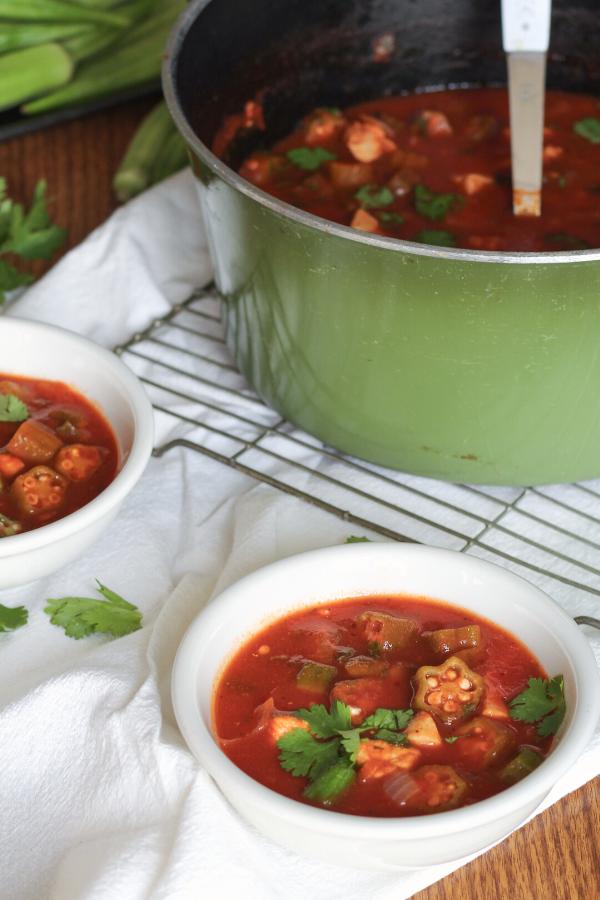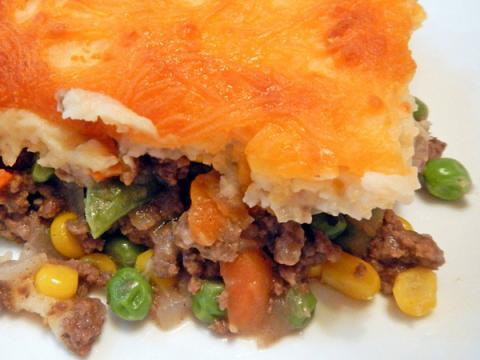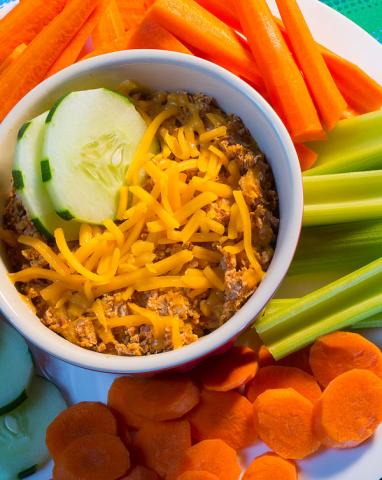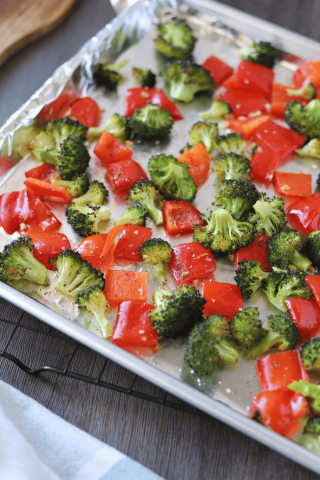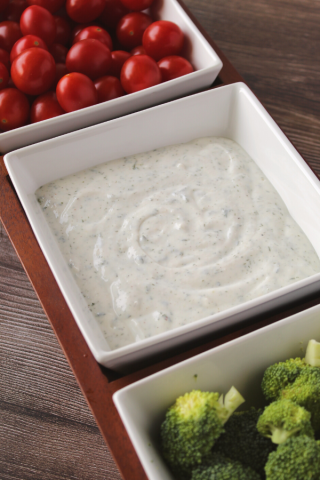Okra Stew (Marigha Bamia)
Bamia or bamiya is a Middle Eastern stew, traditionally made with okra and tomatoes. The dish is often cooked with chicken or lamb and served with rice or bread.
Yield: 16 servings
Ingredients:
- 6 Tablespoons olive oil, divided
- 1 pound fresh okra, gently rubbed under cold running water, chopped or whole*
- 1 onion, scrubbed with clean vegetable brush under running water, chopped
- 1 pound chicken breasts, skinless and boneless, cut into cubes
- 5 garlic cloves, minced
- 1 (29 oz) can tomato sauce
- 2 cups water
- 2 teaspoons salt (optional)
- 1 teaspoon black pepper
- 1 cup fresh cilantro, gently rubbed under cold running water, chopped and divided
Directions:
- Wash hands with soap and water.
- In a large pot, heat three tablespoons of oil over medium heat. Add okra and onions. Cook for 10 minutes.
- Remove vegetables from the pot and set aside.
- Heat an additional 3 Tablespoons of olive oil in the same pot and add chicken. Wash hands after handling uncooked chicken. Cook for five minutes or until internal temperature reaches 165°F as measured with a food thermometer.
- Add garlic and cook for four minutes.
- Stir in cooked okra and onion, tomato sauce, water, salt (if desired), pepper, and half of the cilantro. Simmer for 15 minutes.
- Sprinkle with remaining cilantro and serve with bread or rice.
- Store leftovers in a sealed container in the refrigerator for up to four days.
Notes:
*Frozen okra can be used in place of fresh okra.
Nutrition Information:
Nutrition Software Used:
ESHA Food Processor
Source:
This recipe was adapted from yezidisinternational.org and was created in collaboration with Community Crops and Yazidi Project.
